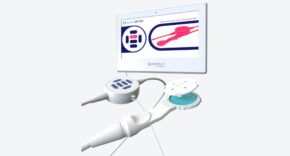
In the fast-paced and high-stakes world of healthcare, managing risk effectively is crucial to ensure the well-being of patients, staff, and the organisation as a whole. Healthcare professionals face unique challenges in their work, making it imperative for them to have a comprehensive risk management strategy.
That’s why the patient safety experts and award-winning compliance software providers, Radar Healthcare, have explored why implementing the following five tips allow healthcare professionals to enhance safety, prevent adverse events, and create a culture of risk awareness within their workplace.
- Promote a Culture of Safety and Risk Awareness
The foundation of effective risk management in healthcare begins with fostering a culture of safety and risk awareness among all staff members. Encourage open communication, where employees feel comfortable reporting incidents, near misses, and potential risks.
Implement regular safety trainings, emphasising the importance of proactive risk identification, mitigation, and reporting. By promoting a culture that values safety and encourages active participation, healthcare professionals can collectively work towards identifying and addressing potential risks.
- Implement Robust Documentation and Record-Keeping Practices
Accurate and comprehensive documentation is vital for effective risk management in healthcare. It is especially important to maintain meticulous records of patient assessments, interventions, and outcomes, as well as documenting incidents, near misses, and any actions taken to address them.
This can be managed and implemented by developing standardised procedures for documentation, and ensuring that staff members receive appropriate training. Timely, thorough, and accurate documentation not only aids in providing quality patient care, but also serves as crucial evidence when addressing potential risks and liability issues.
- Emphasise Proper Infection Control Measures
Infection control is paramount in healthcare settings, and healthcare professionals play a pivotal role in preventing the spread of infections. Adherence to established infection control protocols, such as hand hygiene, appropriate use of personal protective equipment (PPE), and safe handling and disposal of biohazardous materials, is essential.
Healthcare professionals need to educate and reinforce infection control practices regularly, to ensure that all staff members are knowledgeable and compliant. By prioritising infection control, healthcare professionals can mitigate the risk of healthcare-associated infections and protect both patients and staff.
- Continuously Assess and Manage Workplace Hazards
Identifying and addressing workplace hazards is essential to prevent injuries, accidents, and occupational illnesses among healthcare professionals. Conduct regular risk assessments to identify potential hazards in the workplace, such as ergonomic issues, chemical exposures, and environmental dangers.
Implement appropriate controls, such as ergonomic equipment, safety protocols, and effective ventilation systems. Staff should also be encouraged to report potential hazards and actively help to find solutions. Regular reviews and up to date risk assessments should also be carried out and reported on, to ensure that new hazards are identified and managed promptly.
- Foster Collaboration and Teamwork
Effective risk management requires collaboration and teamwork among healthcare professionals. Encourage interdisciplinary communication and teamwork to facilitate a proactive approach to risk management.
Promote interdisciplinary huddles, where healthcare professionals can discuss potential risks, share insights, and develop strategies to address them. As well as this, huddles help to foster a supportive environment where staff members feel empowered to speak up about potential risks or safety concerns.
By working together, healthcare professionals can leverage their collective expertise to identify, assess, and manage risks effectively.
Jonathan Alsop, Data Protection & Quality Lead at Radar Healthcare explains why it is important to effectively manage risk in an often challenging and ever-changing healthcare environment:
“In the challenging and dynamic healthcare environment, managing risk effectively is crucial to ensure patient safety and the well-being of healthcare professionals.
“By implementing the five tips discussed above, promoting a culture of safety, robust documentation practices, emphasising infection control, managing workplace hazards, and fostering collaboration – healthcare professionals can enhance risk management in their workplace.
“By prioritising risk awareness, proactive measures, and continuous improvement, healthcare professionals can create a safer environment for both patients and themselves, ultimately leading to improved outcomes and a higher quality of care.”
More info please visist: https://radarhealthcare.com/product/risk-management/











